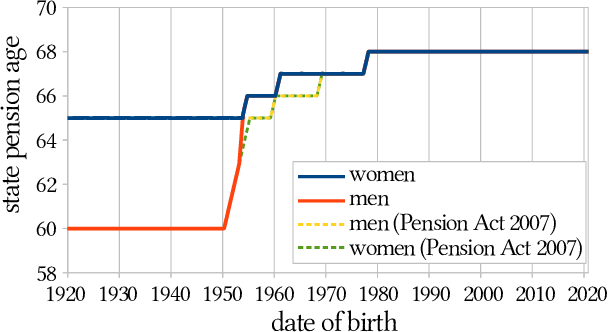
The UK government’s decision to deny £2,950 compensation to the WASPI (Women Against State Pension Inequality) group has sparked significant backlash, with a legal challenge now set to continue in 2025. The dispute centres around changes to the state pension age, which have impacted women born in the 1950s. The government’s refusal to compensate these women will now be tested in court, with a pivotal hearing scheduled for December 2025.
Table of Contents
WASPI Women
| Key Fact | Detail/Statistic |
|---|---|
| Compensation Recommendation | £2,950 per individual |
| Government Decision | Denied compensation, citing fairness to taxpayers |
| Legal Action | High Court case set for December 2025 |
| Official Website | WASPI |
As the legal challenge progresses towards a high-stakes court case in December 2025, the future of the £2,950 compensation for WASPI women remains uncertain. The ruling could reshape the landscape of compensation for governmental mishandling, with lasting effects on public policy and governance. The legal fight underscores the importance of clear communication between governments and their citizens, particularly on matters as crucial as state pension reforms.
The Dispute Over State Pension Age Changes
In 2011, the UK government implemented significant changes to the state pension age, particularly affecting women born in the 1950s. These changes, aimed at equalising the retirement age between men and women, raised the pension age for many women from 60 to 65. However, the government’s failure to effectively communicate these adjustments has led to widespread protests and legal action from the WASPI campaign group.
WASPI women argue that they were not given sufficient notice about the pension age increase, resulting in financial hardship and emotional distress. The campaign’s focus has been to secure compensation for those affected, with figures such as £2,950 per woman suggested in the Ombudsman’s 2024 report.
The women affected by this change were predominantly born in the 1950s, with the pension age adjustment coming as a shock to many who were close to retirement. Many felt unprepared for the abrupt financial disruption caused by this sudden change. As a result, a sense of injustice grew, leading to the formation of the WASPI campaign group.

The £2,950 Compensation Proposal
The £2,950 compensation recommendation came from the Parliamentary and Health Service Ombudsman in 2024. It suggested this payment to redress the “maladministration” caused by the Department for Work and Pensions (DWP) in communicating the state pension age changes. The Ombudsman found that the DWP had failed to provide adequate notice to many affected women, thus potentially breaching its duty of care.
The Ombudsman’s report acknowledged that the DWP’s communication methods were insufficient and poorly timed, which left many women in a vulnerable position. This failure to communicate effectively has been a key issue for the WASPI campaign, and the Ombudsman’s compensation proposal was seen as a victory for those advocating for justice. The proposal aimed to provide financial compensation for the distress and financial challenges faced by these women, compensating them for a policy change they were not adequately prepared for.
Despite this recommendation, the UK government rejected the proposal, arguing that most affected women had ample opportunity to adjust to the changes and were informed through official channels. This response has been met with outrage from campaigners and has intensified calls for justice.
Government’s Response and the Path Forward
In its response, the government emphasized the fairness of its position, arguing that compensating individuals would unfairly burden taxpayers and set a problematic precedent. “We believe that the communications were adequate and that many of those impacted by the change had time to make necessary adjustments to their plans,” stated a government spokesperson in a press release.
This refusal has not deterred the WASPI campaign. Legal representatives for the group have confirmed they will continue to challenge the government’s decision in court. A key court hearing is set for December 2025, which will determine whether the government’s rejection of compensation was legally justified. This ruling could have significant implications for future cases of government maladministration and its accountability to citizens.
The Legal Challenge and Upcoming Court Hearing
The ongoing legal challenge has garnered widespread support, with numerous women’s rights organizations and MPs backing the WASPI women’s case. Legal experts suggest that the court’s decision could set a precedent for how the government handles compensation claims related to pension policies and other forms of maladministration.
“The issue is not just about compensation,” said Dr. Maria Evans, a senior legal scholar at the University of Cambridge. “It’s about ensuring that the government upholds its duty to inform citizens of changes that affect their financial and personal wellbeing.”
The case will be heard by the High Court in December 2025, and the ruling is expected by the spring of 2026. In the meantime, the WASPI campaign group continues to urge the government to reconsider its stance.
The Wider Impact: Legal Precedent and Public Perception
The WASPI case highlights a broader issue of government accountability and transparency. As state pension age changes continue to impact various demographics, this case could set significant legal precedents regarding how future pension policy changes are communicated and whether compensatory measures are warranted in cases of inadequate communication.
Experts have noted that the government’s refusal to compensate the WASPI women may erode public trust in the effectiveness of government policies and their implementation. “This case could have far-reaching consequences for the government’s relationship with its citizens,” said political analyst Emily Holmes.
The WASPI campaign group has consistently argued that the government’s failure to provide clear and timely information was a breach of trust that has led to tangible harm for thousands of women. While the legal battle continues, the movement remains determined to secure compensation for those affected.
Public Support and Campaign Impact
The WASPI campaign has gained significant public attention, with many individuals and organizations backing the group’s call for justice. Over the years, numerous petitions and protests have taken place, with a growing movement rallying behind the affected women. Support from MPs, including from opposition parties, has further amplified the group’s cause. The issue has sparked broader conversations about gender equality and fairness in pension policies, especially for women.
In recent years, many of the affected women have spoken out about the financial strain caused by the pension age increase. “I had worked my entire life expecting to retire at 60, but that changed without proper notice. It’s been financially devastating,” said Janet Thompson, a former school teacher from Leeds, who is part of the WASPI campaign. Her sentiment is shared by thousands of women who have experienced similar challenges.
DWP Cuts £416 a Month from Key Benefit – How to Safeguard Your Family’s Income
FAQ About WASPI Women Compensation
Q1: What is the WASPI campaign?
A1: The WASPI (Women Against State Pension Inequality) campaign advocates for women born in the 1950s who were affected by changes to the state pension age. These changes raised the pension age for women from 60 to 65, which many women argue was communicated poorly, leaving them unprepared for financial hardship.
Q2: Why is the UK government refusing to pay £2,950 compensation?
A2: The UK government rejected the £2,950 compensation proposal, arguing that most affected women had sufficient notice about the state pension age changes and that compensating them would unfairly burden taxpayers. The government insists the communication about the changes was adequate.
Q3: What is the legal status of the WASPI case?
A3: The WASPI campaign group is currently pursuing a legal challenge to the government’s refusal to compensate the affected women. The case will be heard in the High Court in December 2025, with a ruling expected by spring 2026. This legal battle could have broad implications for future pension policy and governmental accountability.
Q4: How can I support the WASPI campaign?
A4: Supporters can participate in petitions, donate to the campaign group, attend protests, or raise awareness about the issue. The WASPI website provides information on how individuals can get involved.
















